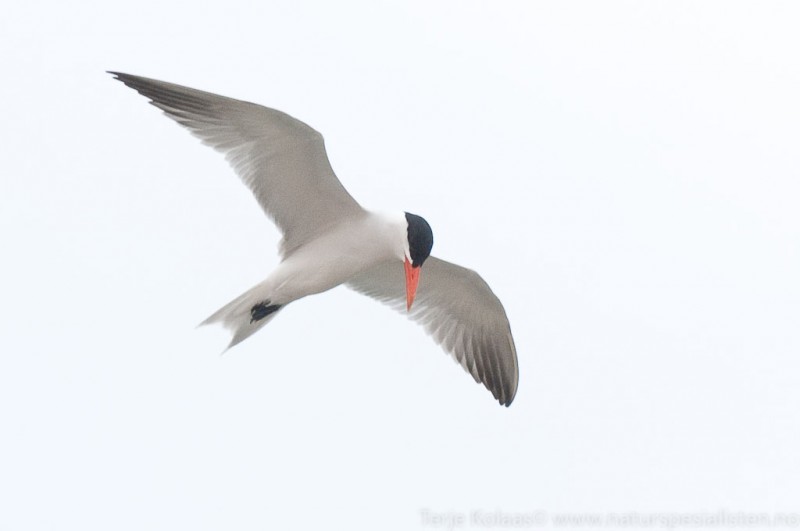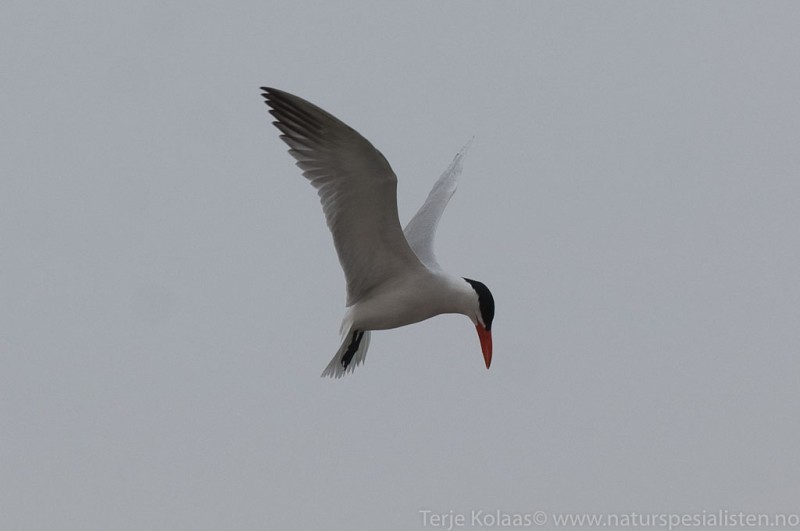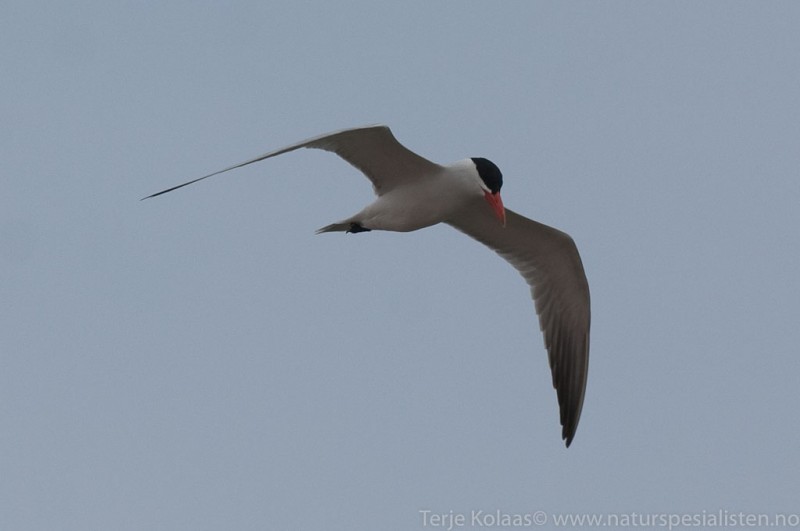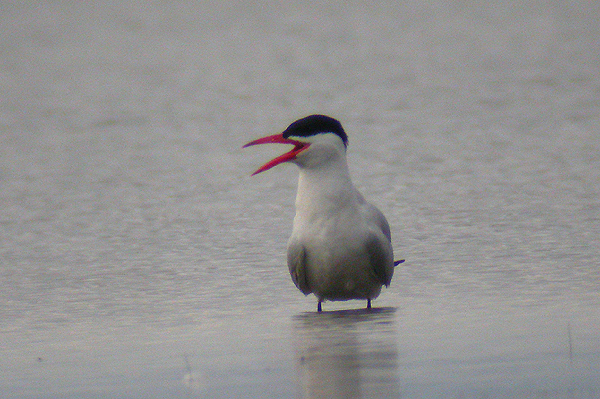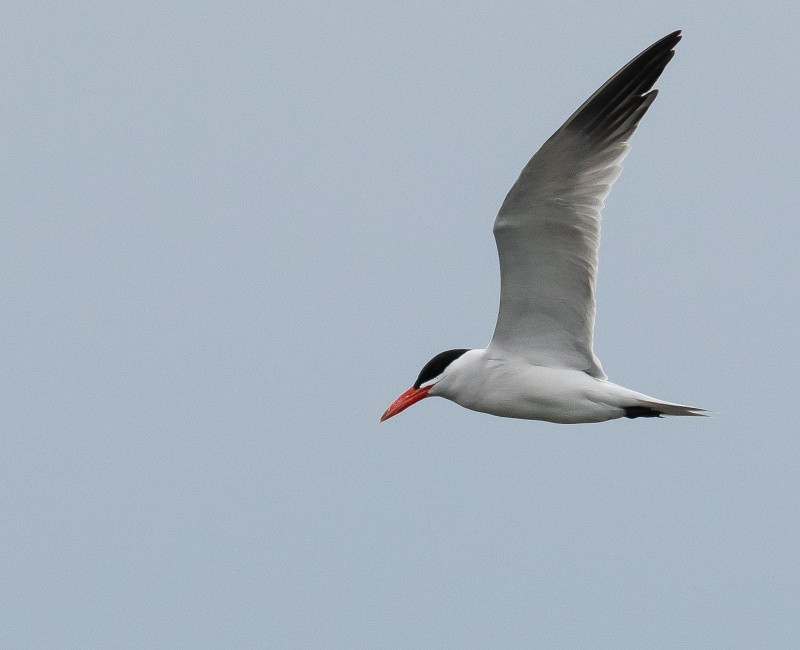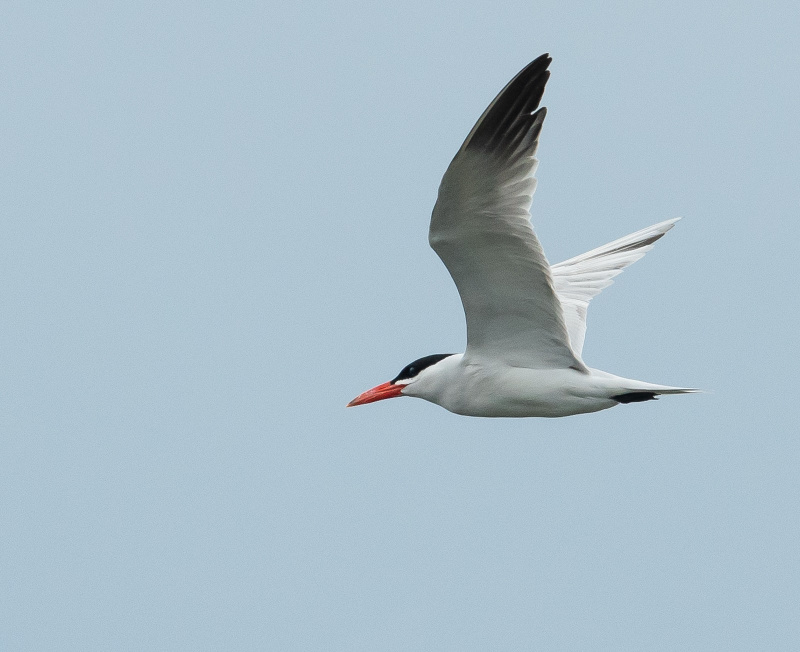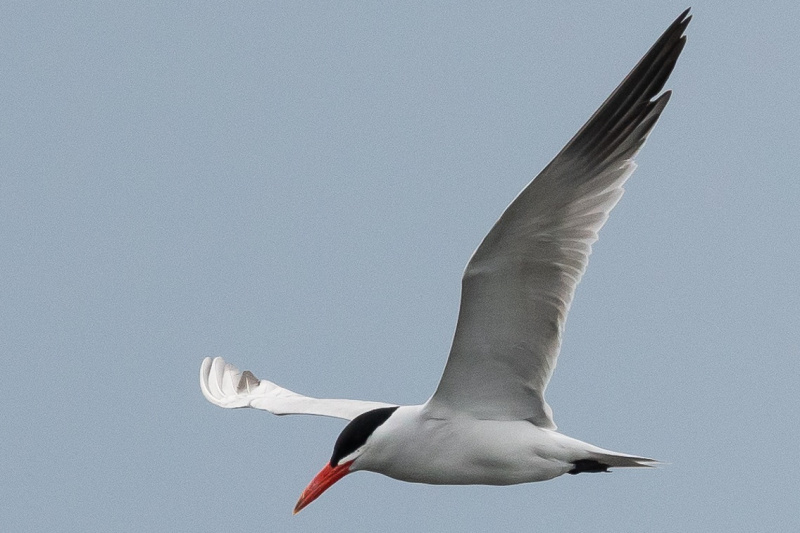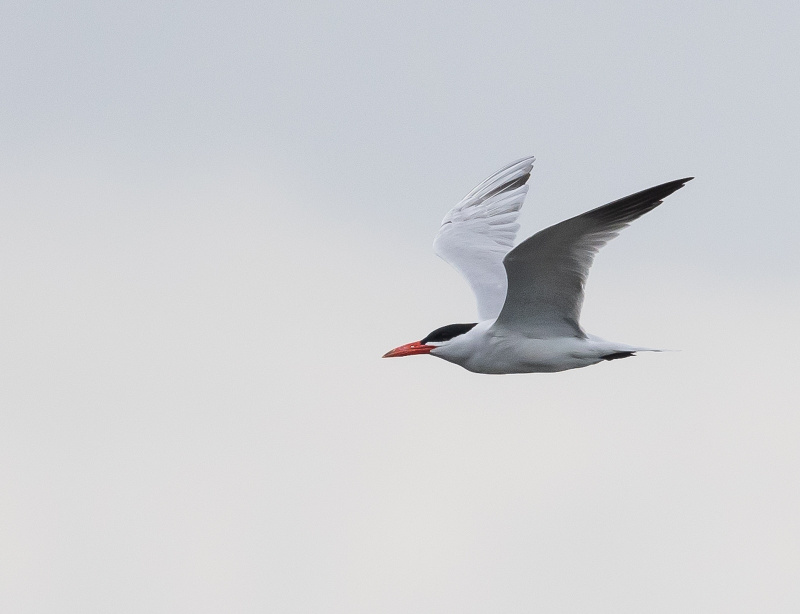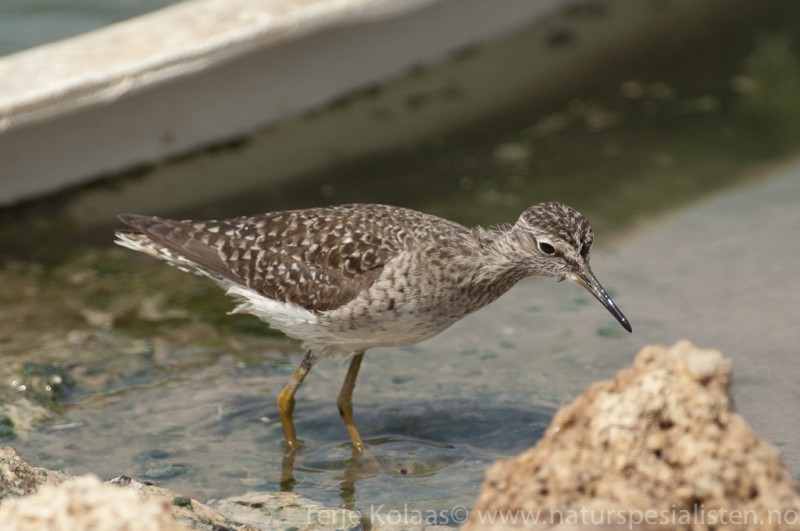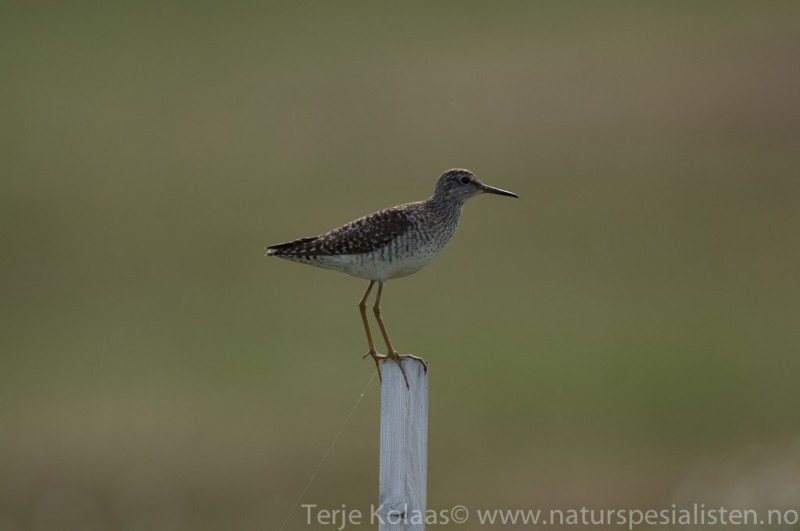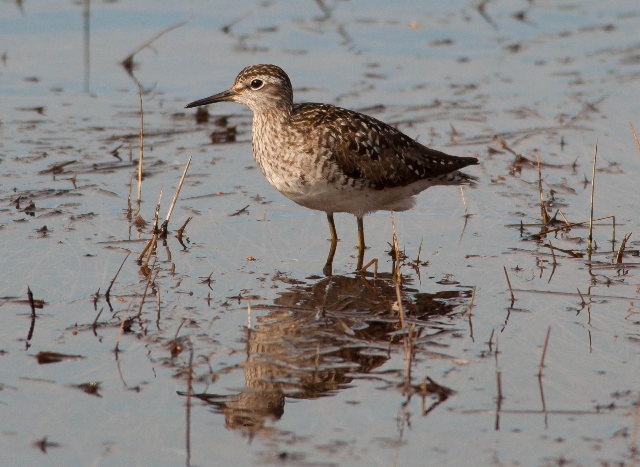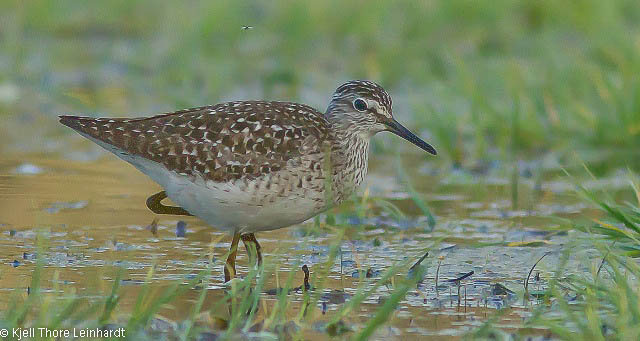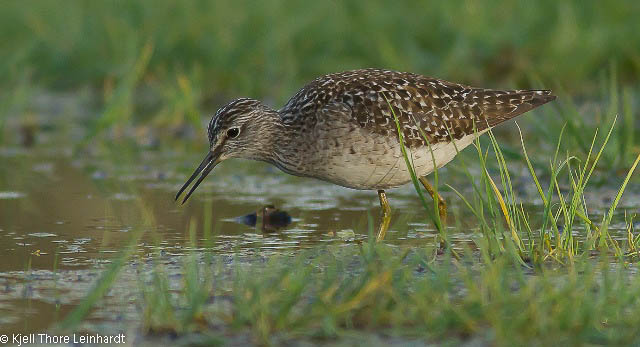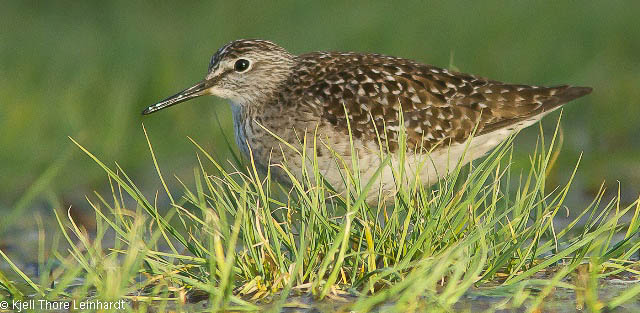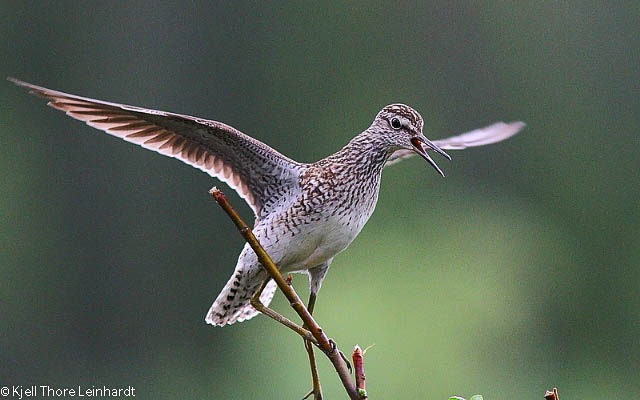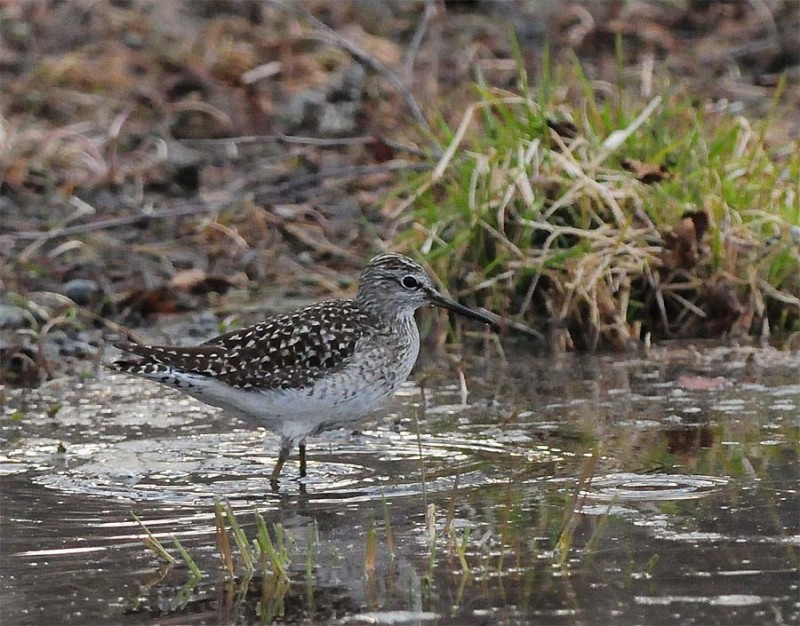Caspian Tern (Hydroprogne caspia)
Wood Sandpiper (Tringa glareola)
Very large tern, with deep, dagger-like, blood-red bill with dark tip. Large, black cap reaching well below the eyes. Grey upperparts and white underparts. Rather short tail. Outer primaries distinctly darker than the rest of upperwing, and outer underwing almost black. Unmistakable from the size alone, and leaves a gull-like impression, lacking the elegance of smaller terns. Immatures with paler bill and white forehead (as in adult winter), and markedly speckled back. Hovers and dives. Often rests on the surface, feeding like a gull.
Sound:Easily recognized by its very harsh calls. Sometimes likened to the sound of a plate of steel being dragged across a concrete floor. Similar in harshness to Grey Heron, but more drawn, with an accented middle; "Kraaeeet", or with a double syllable start "ka-ha-kraaaeet". Immature birds begs with a penetrating, sharp whistle.
Contact call:
Distribution:
Wikipedia: map (se also Xeno-canto below)
Ecology:Birdlife ecology
Links:
Observation.org Latest observations
Image search Flickr NB! May give other species
CCCC-photo:lgooch, Licence,Link.
An energetic, small tringa wader. Most similar to Green Sandpiper. Differs by light underwings, larger white spots on back, diffuse border between speckled chest and white belly, narrower dark markings on tail and a supercilium that reaches behind eye. Plumage leaves an overall much paler impression than Green Sandpiper, particularly in flight.
Sound:Totally different from Green Sandpiper. Flight call a soft, but explosive "whiff whiff" , sometimes with only one syllable. Display call similar to redshank but with only two accented beats; a fast melodious "dee-loo", repeated in cycles.
Song:
Distribution:
Xeno-canto: map
Ecology:Birdlife ecology
Links:
Observation.org Latest observations
Image search Flickr NB! May give other species
CC
 English
English Albanian
Albanian
 Armenian
Armenian
 Bulgarian
Bulgarian
 Catalan
Catalan
 Croatian
Croatian
 Czech
Czech
 Danish
Danish
 Dutch
Dutch
 Finnish
Finnish
 French
French
 Georgian
Georgian
 German
German
 Greek
Greek
 Hungarian
Hungarian
 Italian
Italian
 Latvian
Latvian
 Lithuanian
Lithuanian
 Macedonian
Macedonian
 Norwegian
Norwegian
 Polish
Polish
 Portuguese
Portuguese
 Romanian
Romanian
 Russian
Russian
 Sami : Lule sami
Sami : Lule sami
 Sami : North sami
Sami : North sami
 Sami : South sami
Sami : South sami
 Scientific names
Scientific names
 Serbian
Serbian
 Spanish
Spanish
 Swedish
Swedish
 Ukrainian
Ukrainian


